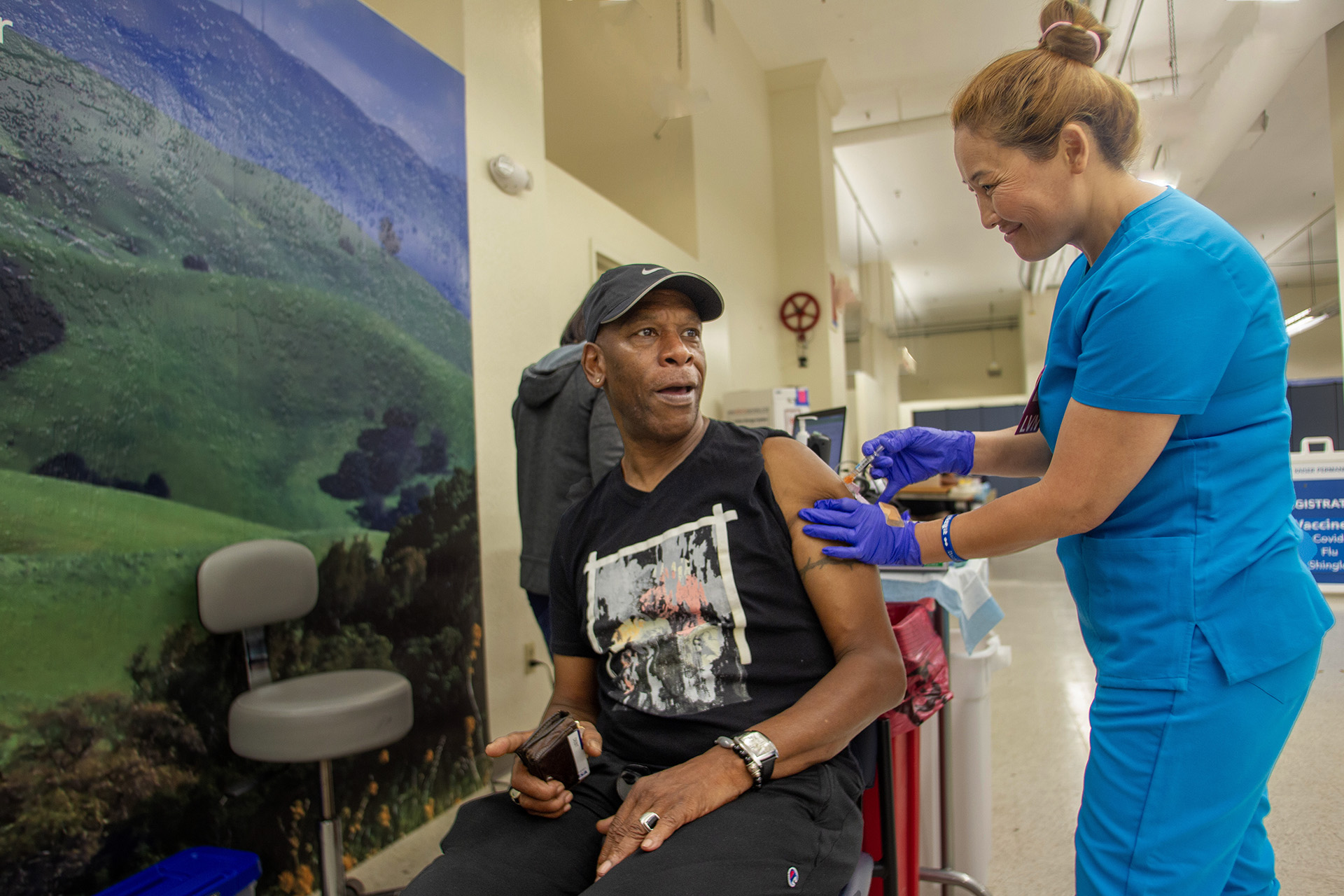After years of the pandemic and with recent rapid changes to the COVID-19 and RSV vaccines, many people are confused by what shots to get this winter, and some are tired of the need for vaccinations altogether.
But experts say that this “vaccine fatigue” comes at a particularly bad time. The hospitalizations from influenza, COVID-19, and RSV are likely to spike together at the end of January or early February.
“Vaccine fatigue is definitely real, and it’s understandable that people feel tired about vaccines given the various updates to vaccines and the new vaccines that have come out,” said Connie Park, MD, Kaiser Permanente Northern California clinical lead for the region’s flu and COVID-19 vaccine programs. “Nevertheless, it’s important for people to know that vaccines are an important strategy to mitigate illness this time of year.”
She noted that the Centers for Disease Control and Prevention (CDC) released a health advisory on Dec. 14, stressing the importance of ongoing immunization for flu, COVID-19, and RSV among patients.
Visit kp.org/flu to find the nearest Kaiser Permanente location to get vaccinated against both flu and COVID-19. Most locations welcome walk-ins.
It’s never too late to get protected
“This season, compared to the last 3 years, is expected to be the worst in terms of flu illness,” Dr. Park said.
While the expected peak for both influenza and COVID-19 is approaching rapidly, it’s not too late to get vaccinated against those viruses, Dr. Park said.
Once a person receives the vaccine, their chances of serious illness from the virus dramatically decrease, Dr. Park said.
“It’s definitely still worthwhile to get vaccinated against COVID-19, the flu, and RSV, if you qualify,” Dr. Park said.
The new vaccine for RSV, a common cold that caused more illness last season than it typically does, is available for those 60 and older, and women who are 32 to 36 weeks pregnant. A new monoclonal antibody is also an option for babies 8 months and younger as well as children between 8 and 19 months old who are high-risk for serious illness.
The realities of vaccine fatigue
So far, the flu vaccination rate among Kaiser Permanente members in Northern California is lower than it has been in previous years, said Dr. Park.
As of Dec. 22, only 37% of KP members received their annual flu shot, Dr. Park said. This indicates that the numbers are not on track to reach the member vaccination rates from previous years, she said. By comparison, about 46% of members received the flu vaccination at the end of the 2023 flu season, and about 45% of members had been vaccinated at the end of the season in 2022.
The vaccination rate among employees and physicians is slightly lower this year. In 2022, by Dec. 19, 61.4% of all employees and full-time physicians got the flu shot, while nearly 60% had by Dec. 18, 2023.
The bottom line: “Even if you still catch the infection after you get vaccinated, that shot prevents a severe case of illness,” Dr. Park said.
Read a recent article highlighting 5 reasons to get a flu vaccine.





This Post Has 0 Comments